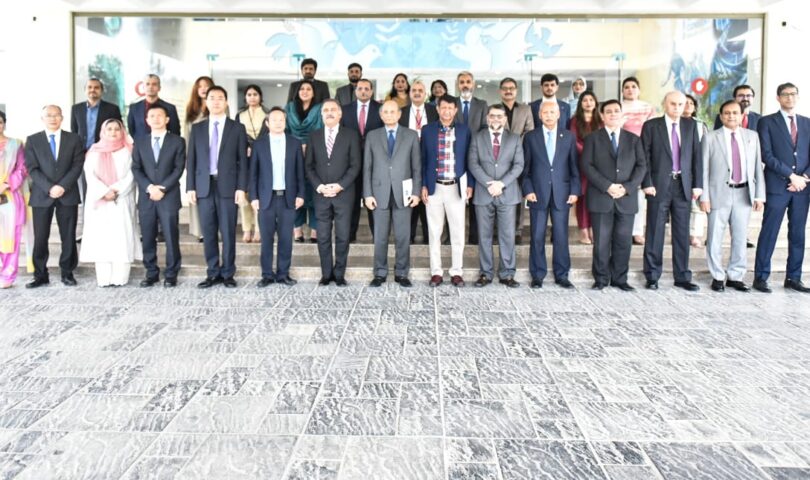ISLAMABAD: The Centre for International Peace and Stability (CIPS) at the National University of Sciences and Technology (NUST) concluded its international conference titled “Shaping a China-Pakistan Shared Destiny: The Roles of CPEC 2.0 and Academic Cooperation”, bringing together senior policymakers, academics, and industry leaders from both countries to chart a roadmap for the next phase of bilateral cooperation.
The one-day event focused on moving beyond the foundational phase of the China-Pakistan Economic Corridor (CPEC) toward CPEC 2.0, which participants described as a gateway to deeper economic integration. The discussions highlighted emerging areas of collaboration — including technology transfer, industrial cooperation, and green energy — as key drivers of the partnership’s next phase.
Delegates agreed that the long-term strength of the China-Pakistan partnership lies not only in physical infrastructure but also in intellectual and academic linkages. Speakers stressed the importance of joint research, human capital development, and cultural exchange in sustaining growth and mutual understanding between the two nations.
“The discussions over the past two days have been incredibly fruitful,” said Prof Zhang Jiegen, Director of the Pakistan Study Centre at Fudan University, Shanghai. “We have moved from simply celebrating the successes of CPEC to strategically aligning our academic and research capabilities with the demands of CPEC 2.0. This synergy between economic development and knowledge creation will truly define our shared destiny.”
The conference featured thematic sessions on economic integration, academic collaboration, knowledge production, and people-to-people ties, with participants exploring how to enhance cooperation across these domains.
The event concluded with a set of policy recommendations for governments, universities, and private-sector institutions to strengthen collaboration and ensure that the China-Pakistan partnership continues to serve as a model for sustainable and inclusive international cooperation.
